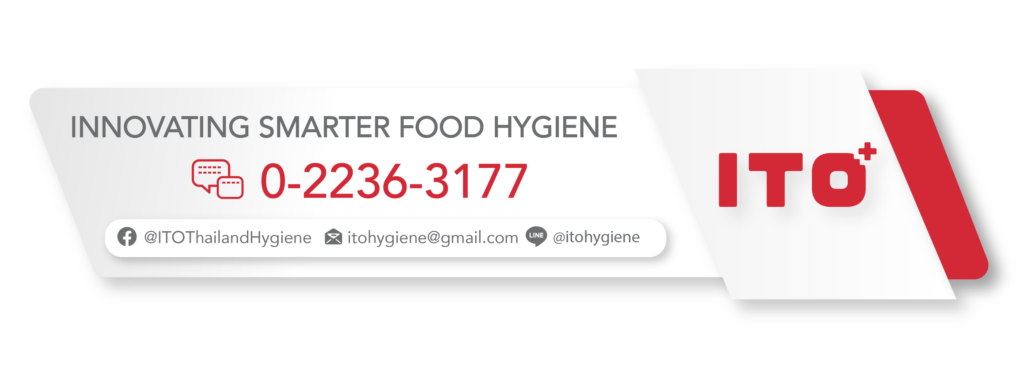ITO Thailand Hygiene Blog
FSSC 22000
Food manufacturers must ensure food safety standards and processes (2). FSSC 22000 is an official certification program for Food Safety Management Systems (FSMS) recognised by the Global Food Safety Initiative (GFSI). This certification scheme offers a set of guidelines and procedures to ensure uniformity, openness, and safety across your entire supply chain. It applies to all companies operating within the food and beverage industry, ranging from farmers to retailers. By fulfilling the necessary criteria and obtaining FSSC 22000 certification, it is demonstrated that the required standards for food quality and implementing effective processes to manage and mitigate risks associated with food fraud, foodborne illnesses, expensive recalls, and other external threats are met (1).
Scope and Structure
The requirements for FSSC 22000 certification can be categorised into three main components (6):
•ISO 22000:
The foundation of the Food Safety Management System (FSMS) is based on the ISO 22000 standard. However, more than solely complying with ISO 22000 is required for recognition by the Global Food Safety Initiative (GFSI). Hence, two additional components are necessary for FSSC 22000.
•Prerequisite Programmes (PRP):
These programs are derived from ISO/TS 22002-1, which outlines various requirements related to the layout and construction of the business premises, maintenance services, product information, personnel hygiene, food fraud prevention, and defence systems.
•FSSC 22000 Additional Requirements:
The additional requirements for FSSC 22000 encompass adherence to regulations, effective management of food safety personnel, and the proper recording and review of management services such as utilities, transportation, and maintenance.
FSSC 22000 encompasses a comprehensive certification scheme for Food Safety Systems by utilising established certification standards such as ISO 22000 Food Safety and ISO 22002. Every food-producing organisation is responsible for identifying appropriate pre-requisite programs (PRPs) tailored to their specific production area. ISO 22002 provides guidelines to assist in this process. The PRPs consider various factors within the food production environment, including pest control and personal hygiene. For food manufacturers, the applicable prerequisites are ISO/TS22002-1 or PAS223, which relate to food packaging (3).
In other words, if a manufacturer already holds certification for ISO 22000 Food Safety, they will only need to undergo an additional review against the technical specifications for their sector’s PRPs to fulfil the requirements of this certification scheme.
FSSC 22000 vs. ISO 22000
The FSSC 22000 scheme utilises the ISO 22000 standard’s FSMS as a foundation to establish a structured framework for various processes (SafetyCulture, 2023). The primary distinction between ISO 22000 and FSSC 22000 lies in their certification status. While ISO 22000 certification does not hold GFSI certification, FSSC 22000 certification, on the other hand, is recognised and certified by GFSI (4).
There are four distinctions between FSSC 22000 and ISO 22000. First, ISO 22000 focuses solely on management systems. Next, PRP implementation according to the ISO 22000 standard allows its compatibility with other Good Manufacturing Practice (GMP) standards. Then, FSSC 22000 incorporates ISO 22000:2018, ISO-specific technical standards, and additional requirements. Certification of FSSC 22000 is acknowledged and accepted by GFSI, and finally, ISO 22000 certification is not recognised by GFSI (4).
Benefits of FSSC 22000 (5)
•Mitigating Risks and Hazards
FSSC 22000 offers an effective food safety hazard management system, ensuring the production of safe products. It establishes an environment and management framework for continuous monitoring, validation, and improvement of the system.
•Enhancing Reputation and Retaining Customers
When consumers trust certified products, they become loyal patrons and even attract new customers in the future. Consequently, the reputation will soar, providing increased value to the establishment.
•Expanding into International Markets
Being the largest globally recognised standard by GFSI, FSSC 22000 certification increases the likelihood of gaining recognition from people worldwide. This paves the way for easier product marketing when entering foreign markets.
FSSC 22000 significantly contributes to every food supply chain party, including food retailers, suppliers, and manufacturers. Retailers can reap the advantages of FSSC 22000’s framework approach, enabling businesses of all sizes to implement a customised food safety management system that meets the expectations of their business partners. For suppliers many prominent food retailers mandate that suppliers possess a GFSI-certified scheme like FSSC 22000. GFSI establishes food safety standards and enjoys support from a coalition of the world’s largest food retailers and suppliers. For manufacturers, FSSC 22000 is widely embraced across the supply chain and aligns with GFSI’s principle of “once certified, recognised everywhere.” Manufacturers obtaining FSSC 22000 certification can anticipate that the quality of their products will, at the very least, be in line with industry peers (6).
Another notable benefit of FSSC 22000 is its comprehensive guidance on implementing an effective Hazard Assessment Critical Control Point (HACCP) system. HACCP involves proactively identifying points in food production that are susceptible to hazards, which, if unaddressed, could render a food product unsuitable for consumption. Additionally, organisations already certified with ISO 22000 will find it more straightforward to transition to FSSC 22000, further emphasising the benefits of FSSC 22000 certification (6).
References
1.(2023). What is FSSC 22000? Retrieved June 28, 2023, from https://fsns.com/what-is-fssc-22000/
2.(2022). Delivering trust and impact on global food safety with FSSC 22000. Retrieved June 28, 2023, from https://www.fssc.com/schemes/fssc-22000/
3.GCL International. (2023). FSSC 22000 GCL INTL. Retrieved June 28, 2023, from https://www.gcl.uk/certification/fssc-22000-food-safety-system-certification/
4.Mohanty, M. (2021). Difference between ISO 22000 and FSSC 22000. Retrieved June 28, 2023, from https://www.rajstartup.com/blog/difference-between-iso-22000-and-fssc-22000
5.Nimbly Technologies. (2021). 3 Benefits of Having Food Safety System Certification (FSSC 22000). Retrieved June 28, 2023, from https://hellonimbly.com/3-benefits-of-having-food-safety-system-certification-fssc-22000/
6.(2023). FSSC 22000: All You Need to Know. Retrieved June 28, 2023, from https://safetyculture.com/topics/fssc-22000/
Related Post
-
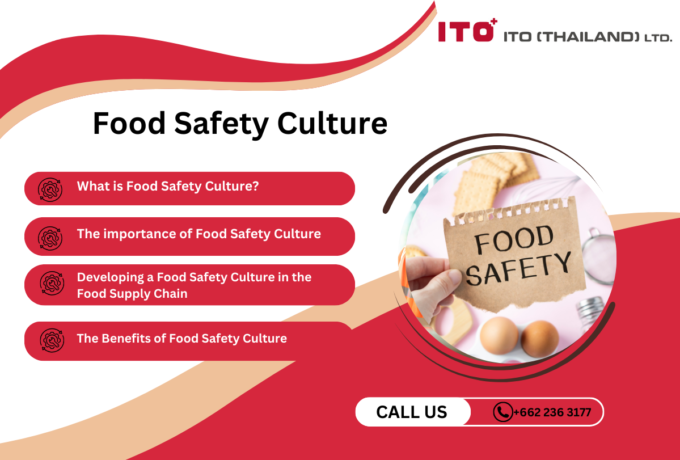
Food Safety Culture
Food safety culture plays a crucial role in safeguarding the company's reputation, ensuring the well-being of its employees, and providing a safe experience for its customers.
-
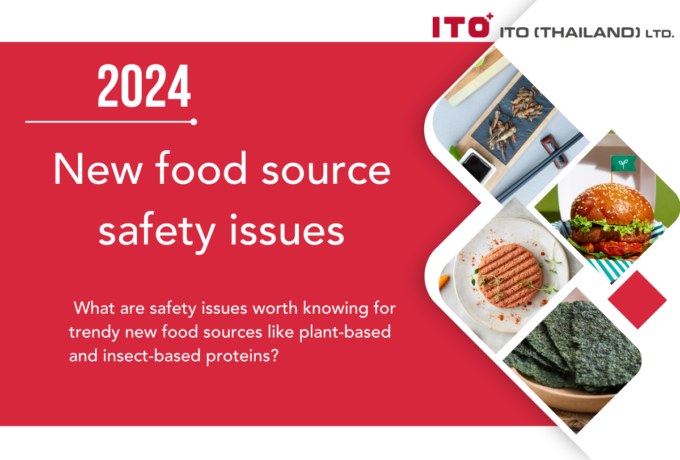
New food source safety issues
What are safety issues worth knowing for trendy new food sources like plant-based and insect-based proteins?
-
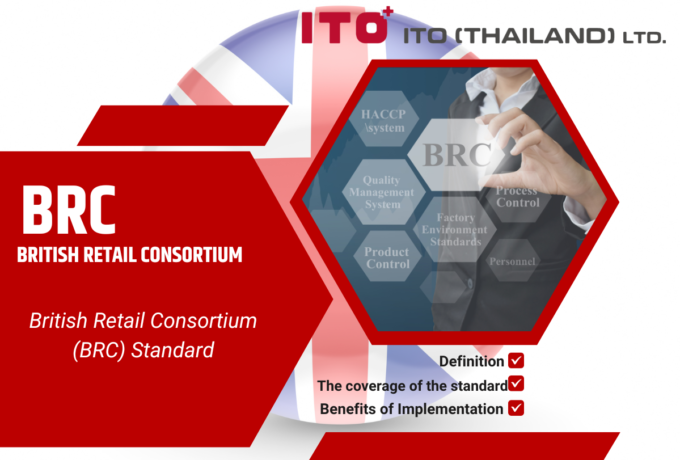
British Retail Consortium (BRC) Standard
Food safety management systems play a vital role in ensuring the production and distribution of safe and high-quality food products to consumers. With the global food supply chain becoming increasingly complex, food businesses must implement effective systems prioritising safety, quality, and compliance with industry standards. A food safety management system encompasses a set of procedures, processes, and controls designed to identify, prevent, and manage potential hazards at every stage of the food production and supply process. This proactive approach not only safeguards consumers' health but also protects the reputation and credibility of food companies in an ever more competitive market.
-
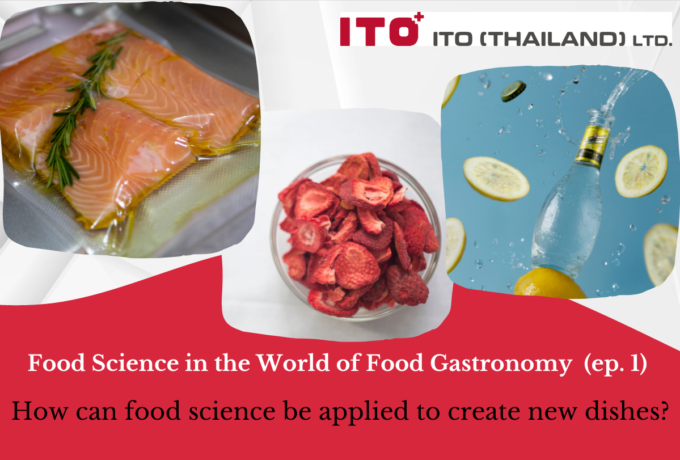
Food Science in the World of Food Gastronomy (Part 1)
How can food science be applied to create new dishes?
-

Food Safety Aspects of Artificial Sweeteners
Artificial sweeteners, also known as sugar substitutes, non-nutritive sweeteners, or high-intensity sweeteners, are artificially produced compounds utilised in place of sucrose (table sugar) to add sweetness to food and drinks. Due to their significantly higher sweetness than regular sugar, only a fraction of artificial sweeteners (200 to 20,000 times less) is required to achieve an equivalent level of sweetness. Since the caloric contribution of these sweeteners, when used in such small quantities, is insignificant, they are often referred to as non-nutritive (4).
-

New food sources from under the sea
A new sustainable food source that is environmentally friendly and addresses resource scarcity issues, which is currently trendy! Let's get acquainted with the new food sources from the underwater world, such as seaweed and jellyfish.









